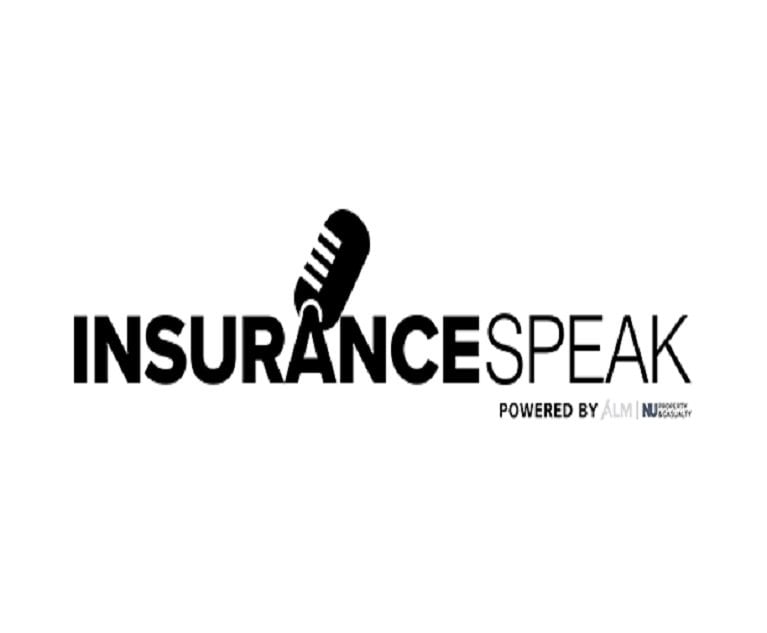If you own an underwriting agency with a veryspecialized, quality book of business—and have no plans to sellit—then Stephen Way may want to talk about making a deal.
|The chair and CEO of Houston International Insurance Group(HIIG), which added to its portfolio in February Birmingham,Ala.-based managing general underwriter Casualty & Surety Inc.(CSI), a specialist in mining and energy risks, says he's on thehunt for more acquisition targets—but that only MGUs without “ForSale” signs attract his attention.
| “Some deals get flogged aroundeverywhere”—getting sent to 50 or so potential buyers, Way says.“On the deals we prefer, we may be one of only two parties” lookingat an MGU.
“Some deals get flogged aroundeverywhere”—getting sent to 50 or so potential buyers, Way says.“On the deals we prefer, we may be one of only two parties” lookingat an MGU.
He compares a quality specialty underwriting agency to a goodapartment in New York City. “It changes hands by word of mouth. Ifyou have a great rent-controlled apartment, you don't have toadvertise. [Likewise,] a good underwriting agency doesn't have toput itself up for sale,” he says.
|Way admits, however, that deals with unadvertised specialtyagencies, with owners not keen to sell, are obviously among thehardest to make. “You're only up against the person who owns it,but he doesn't want to sell.”
|Way is the founder, former chair and CEO ofHouston-based HCC Insurance Holdings, a publicly traded group ofinsurance company and underwriting agency subsidiaries, where hegained most of his experience, including buying more than 35agencies. Way started HCC in 1974.
|Like HCC, HIIG, which started four years ago, is a holdingcompany for operating businesses rather than an investment vehicle.It currently has five subsidiaries: Imperium Insurance Co., HoustonSpecialty Insurance Co., Great Midwest Insurance Co., NationalHealth Insurance Co. (a life & health company), and Bunker HillUnderwriters, which now includes CSI.
|Way, a 40-year veteran of the industry, spoke to NUrecently about his agency-acquisition appetite at HIIG goingforward; a recent merger with an ailing carrier group; and hisdead-certain views on the potential for a marketturn.
|First, we asked about the October 2010 merger deal that linkedHIIG, then called Southwest Insurance Partners, with LightyearDelos Acquisition Corp.—a holding company for Delos Insurance Co.,a N.Y.-based program-business carrier, and Naxos Insurance Co., asurplus-lines insurer—which was formed by private-equity firmsLightyear Capital and Trilantic Capital Partners.
|Q: Why did you view the Lightyear Delosdeal as a good opportunity?
|Way: Lightyear Capital was looking for newmanagement for their insurance operations. They had owned Delos,which we now call Imperium, for about five years, and they had somemanagement difficulties. Their results were less than stellar. Theywere sort of perplexed as to what to do.
| They didn't want to sell at a low point in the market,when valuations are not high and when the company results were notconducive to a good sale anyway. They asked us if we would beinterested in having them contribute their insurance companies intoour group so that we could manage them. And after lengthydiscussions and due diligence, we agreed.
They didn't want to sell at a low point in the market,when valuations are not high and when the company results were notconducive to a good sale anyway. They asked us if we would beinterested in having them contribute their insurance companies intoour group so that we could manage them. And after lengthydiscussions and due diligence, we agreed.
Q: Since results were “less thanstellar,” have you terminated some of the Delosprograms?
|Way: We eliminated about 75 percent of theirpremium. We canceled the majority of their programs, and they're inrunoff now.
|We also terminated all of their senior management—every one ofthem. That's pretty bad, but the results were not worthy of thosefolks keeping their jobs.
|Q: So what made the dealattractive?
|Way: It's a great platform. We picked up anadmitted insurance company with 50 licenses, and a surplus-linescompany, which we didn't have, with 48 licenses. And frankly, wepicked up cheap capital because after we strengthened their balancesheet by making them take a reserve charge, we then picked up thebalance of their capital at cost.
|Q: You have said thatthe market will not turn until there are some high-profile carrierfailures. Assuming we're close to a turn, and that some carriersare having financial problems, would you have an interest in buyingthem?
|Way: I'm not really a buyer of distressedinsurance companies. That's sort of like running an orphanage. It'sa good thing, but I'd just as soon let somebody else do it.
| This particular situation [theDelos deal] suited us because it really helped our basic platformby providing us with things we needed.
This particular situation [theDelos deal] suited us because it really helped our basic platformby providing us with things we needed.
Having said that, if there was a way to separate bad businessfrom potential good business, it might be interesting. But it'sextremely time-consuming. And in the end, the cheap capital becomesnot so cheap when you have to deal with runoff issues.
|As to the market-turn inference, we are not at the end of thesoft market. We might see some increase in property rates, butthere is no hope of casualty business [hardening]. You can quoteme. There's no hope.
|Rates aren't going up. In many cases, they are still going down.They are woefully low at this point, and if the industry didn'thave the reserve releases we've been seeing over the last 18months, we would already be seeing red ink.
|Q: Are you interested in buyinginsurance carriers at all at this point?
| Way: Sure. There arecompanies out there that have good platforms and good books ofbusiness that could be managed a little differently—companies thatare a bit lost coming out of one of the greatest hard markets in 30or 40 years—maybe ever.
Way: Sure. There arecompanies out there that have good platforms and good books ofbusiness that could be managed a little differently—companies thatare a bit lost coming out of one of the greatest hard markets in 30or 40 years—maybe ever.
If you've got a management team that's only good in a hardmarket, then what are you going to do most of the time? There arevery few well-run insurance companies.
|Q: Why was the CSI dealattractive?
|Way: That's a typical acquisition that we wouldlike to make. If you were to describe our perfect acquisition, youcould almost describe CSI. It's an independent underwriting agencywith a quality book of business that is very specialized. It hasgood results and people who would remain with the agency. That's aperfect package for us.
|Q: Is there a particular agency sizethat you're targeting?
|Way: We're very flexible. We would do deals assmall as $10 million and as big as $500 million. We're not limitedby size because we have access to lots of capital.
|We could do a big deal if we had the inclination. But our sweetspot right now is in the $10-$20 million underwriting agency. Wewant their business, we want their distribution, and we want theirtalent.
|Q: Are you seeing a lot of otheropportunities that fit in that sweet spot, beyond CSI?
|Way: There are a lot of underwriting agenciesaround. Unfortunately, there aren't as many good ones as you think.A lot of them that are out there are fighting for the samebusiness—“stereotype business”—just general commercial lines.
|In addition, many agency owners tend to have a higher opinion oftheir valuation than is realistic, with less business and lowerprofit contingencies contributing to margins in a soft market. Soit's hard to make a deal with an agency unless they really havesomething that they specialize in, which you can pay a premiumfor.
|Q: Do you have any in thepipeline?
|Way: We're probably always looking at two orthree deals at any given time, but not too many of them come tofruition because either the price is wrong or it's not a good fit.People are under the misapprehension that a small deal is easierthan a big deal, and in many cases it's quite the contrary. Dealingwith a small business that's a little unsophisticated financiallycan be more time-consuming and difficult than dealing with a largerone that has more resources to turn to when they're innegotiations.
|Q: Why would those agencies that reallyspecialize choose HIIG over competing potentialacquirers?
|Way: We provide a place where entrepreneurs cansell their businesses and continue to run them, and not justdisappear into a corporate mass.
|These days when a privately owned agency is bought by a publiccompany, they are showered with such tremendous amounts ofregulations and rules, and they get lost. It's very hard to keep anentrepreneur—someone who has spent his life doing hisbusiness—interested and focused when all they have to do is answermore and more questions and send more and more memos.
|Of course, we're regulated because we're in the insurancebusiness, but we're not suffocated like a public company is.
|Also, when we buy an agency, we're satisfied that the people init know what they're doing, and we don't have to run their businessfor them. We give them plenty of room to do their thing. We providethem with more resources, capital, whatever they need to grow theirbusiness. But we don't get in their way.
|It's important to understand that because if you lose the keypeople at the agency, then what did you really buy? There are nohard assets there. It's just people.
|Over the years, in the agencies I have bought, the sellers havewanted to continue to grow their businesses, they want to continueto have jobs for their employees, and they want to work in anenvironment that doesn't totally overcome them. That's difficult tofind. So we're sort of an oasis—a privately owned company that getsit.
Want to continue reading?
Become a Free PropertyCasualty360 Digital Reader
Your access to unlimited PropertyCasualty360 content isn’t changing.
Once you are an ALM digital member, you’ll receive:
- All PropertyCasualty360.com news coverage, best practices, and in-depth analysis.
- Educational webcasts, resources from industry leaders, and informative newsletters.
- Other award-winning websites including BenefitsPRO.com and ThinkAdvisor.com.
Already have an account? Sign In
© 2024 ALM Global, LLC, All Rights Reserved. Request academic re-use from www.copyright.com. All other uses, submit a request to [email protected]. For more information visit Asset & Logo Licensing.








